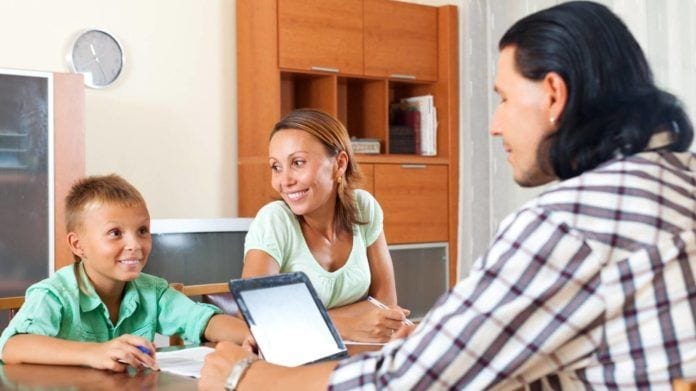The start of school is just around the corner. And with it brings a brand-new teacher; not only for your child, but for you too. It’s important for parents and teachers to work together to ensure a child’s success in the classroom. The first step is establishing a good relationship with each other early on in the school year.
Not sure what steps to take to get the ball rolling? Best Of NJ asked local experts to weigh in with their advice for parents on how to start the year off right.
More from Best of NJ
Get Involved
Show up for events such as Back to School Night, suggests Stacy Haynes, CEO and counseling psychologist at Little Hands Family Services in Turnersville. Use this chance to gain face time with your child’s teacher and learn about opportunities for involvement. If you’re able to make a bigger commitment, consider becoming class parent or joining the Parent-Teacher Association (PTA or PTO).
Also, ask teachers how they prefer to communicate throughout the school year, recommends Fran Walfish, author of The Self-Aware Parent. Some teachers are great at email communication while others may prefer a phone call. Be sure to initiate conversations before any problems arise, adds Haynes. That way it’s easier to broach more sensitive issues when they pop up.
Be Responsive
Some parents fail to do the bare minimum, which makes the teacher’s job more challenging. Most experts agree that parents can help by following up with any requests in a timely manner. So if your child’s teacher sends home documents to be signed or asks for classroom donations, try and respond promptly. It shows you are respectful and supportive of the teacher’s efforts.
Help with Homework
Teachers appreciate parents, who extend the learning experience into the home. That could mean having thoughtful discussions with kids and reading aloud to them. Or going to a museum related to work they’ve been doing in the classroom. More often than not, however, it means helping with homework. Haynes says even teens benefit from having a parent nearby to answer questions about the schoolwork they bring home.
Making sure kids have good study habits and facilitating their ability to do homework is a must. If a parent doesn’t understand something in the homework, she should respectfully let teachers know, says Haynes. The teacher may be able to find a better way to explain what needs to be done or offer additional help.
Have a Positive Attitude
Negativity breeds negativity. So avoid bad mouthing educators, even when embroiled in conflict. “Be positive at home with your child when discussing school and his teacher,” says Rose Acerra, a mom of three boys and president of the New Jersey PTA. And avoid gossiping with other parents about teachers or students in the class.
Gently Address Concerns
Parents should stay calm and be respectful when approaching teachers about problems. They should also hear them out before jumping to conclusions. “Do not send negative or condescending emails to teachers based solely on your child’s report,” warns Haynes. “Working with children, I know there are always two sides to the story. Make sure to give the teacher a fair chance to explain concerns your child has and see if solutions can be made together.”
And never forget to follow protocol. Some parents jump to the principal instead of first going to the teacher with an issue, says Acerra. It can make the teacher feel inadequate or manipulated. Ultimately, parents should try to establish a working relationship rather than an adversarial one. “Don’t be a pain in the neck to your child’s teacher and risk your child taking the brunt of it,” says Walfish.
For a Good Relationship, Stay in Regular Communication
Think of this as a professional relationship that requires your utmost attention. “The basis of establishing a good rapport with anyone is clear and open communication,” says Ariadne Gourometsios-Jaffe, a bilingual-ESL teacher at Ronald Reagan School 30 in Elizabeth. “I remind parents that I’m a parent too, and although education is always changing, their child’s ability to learn will always be a partnership between school and home.”
Hero (Top) Feature Image: © JackF / Adobe Stock













